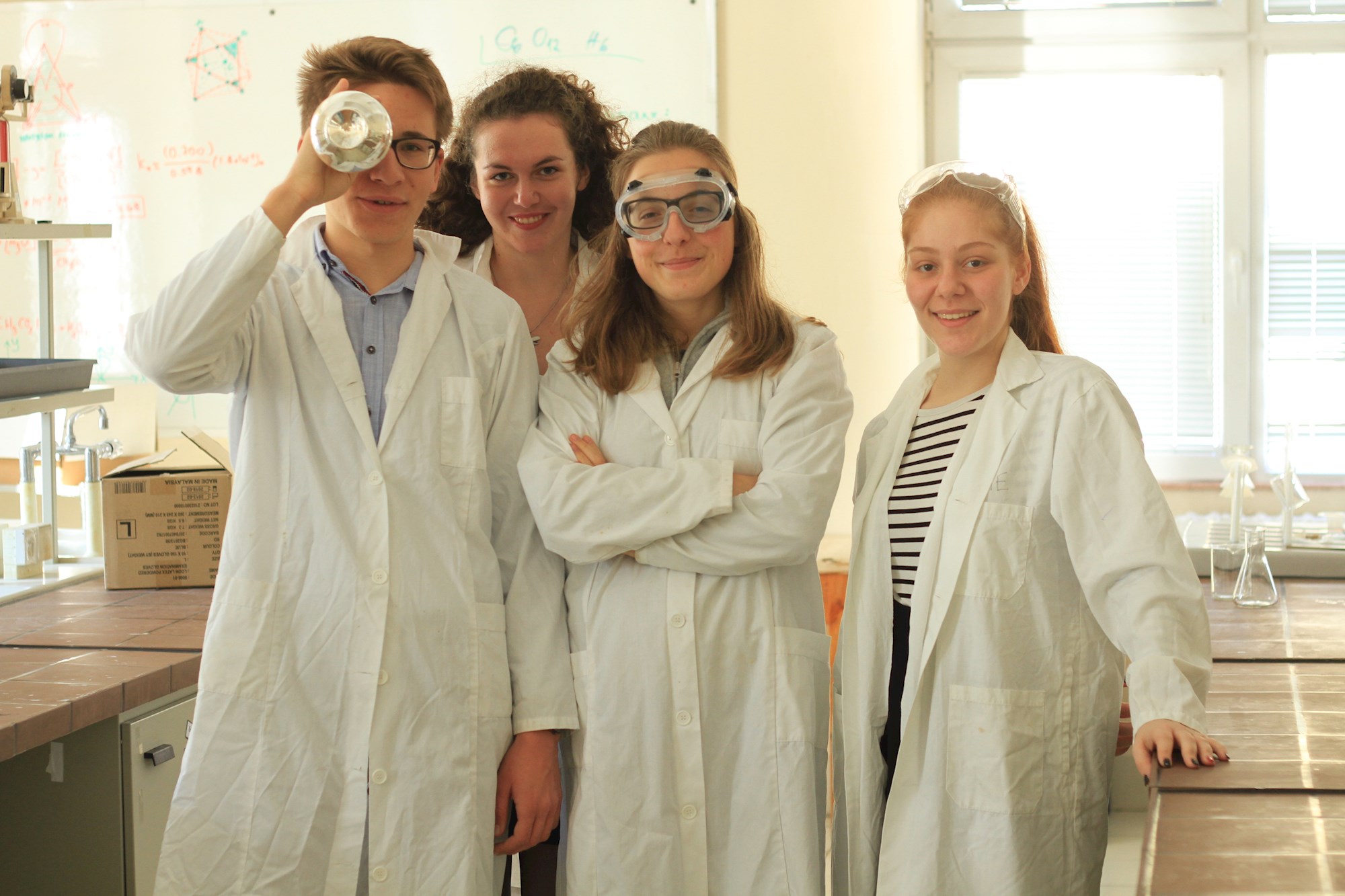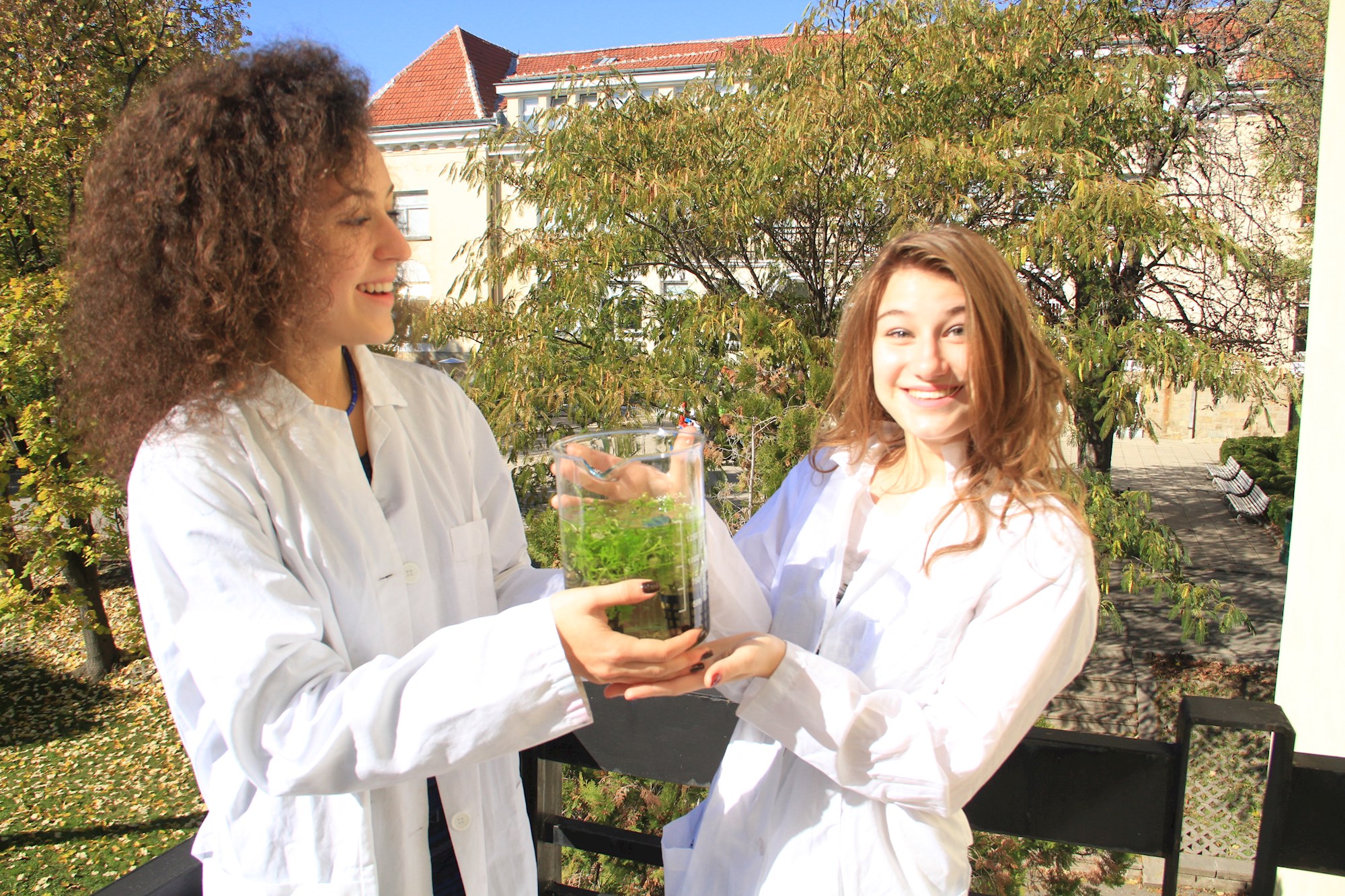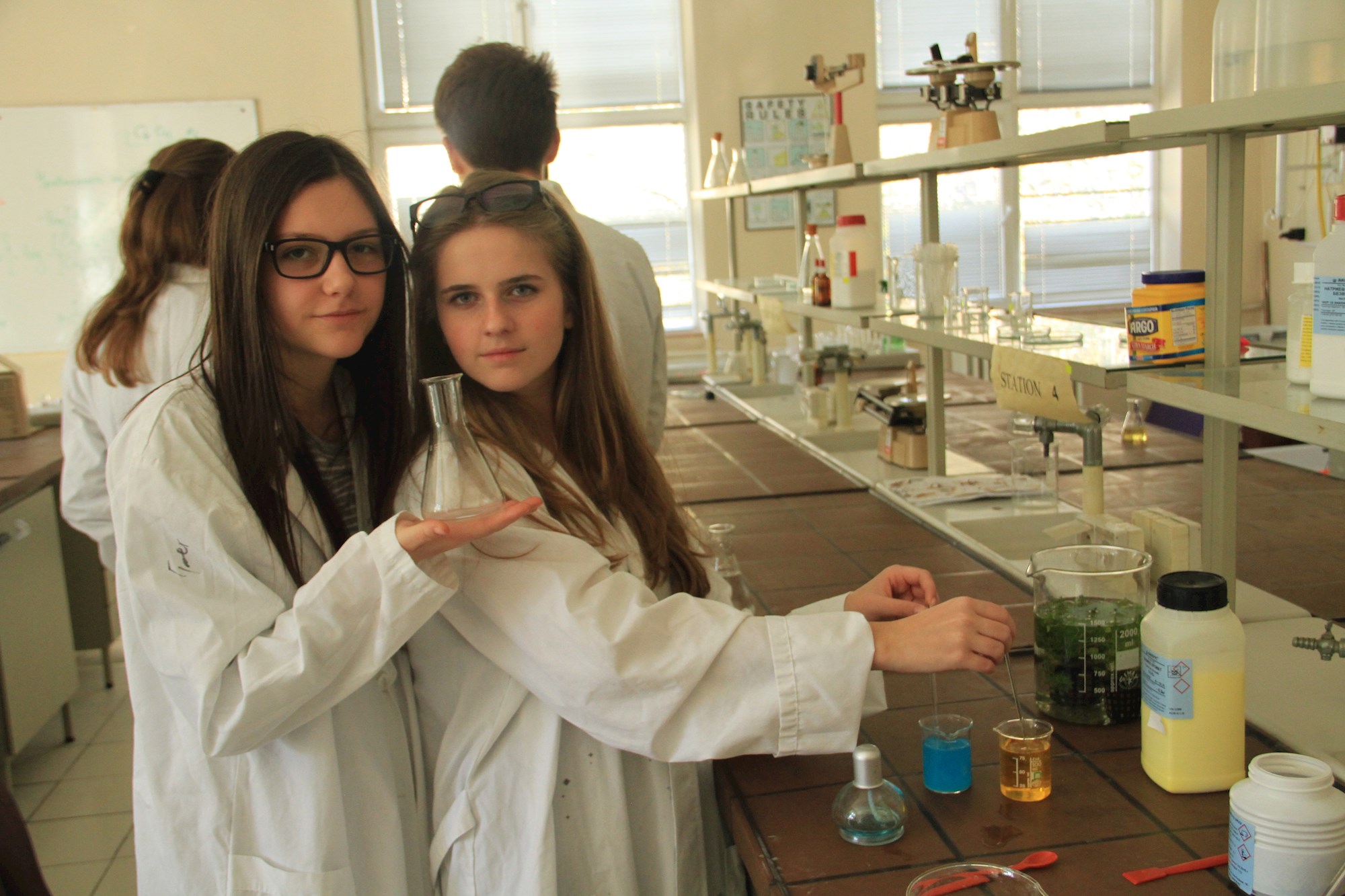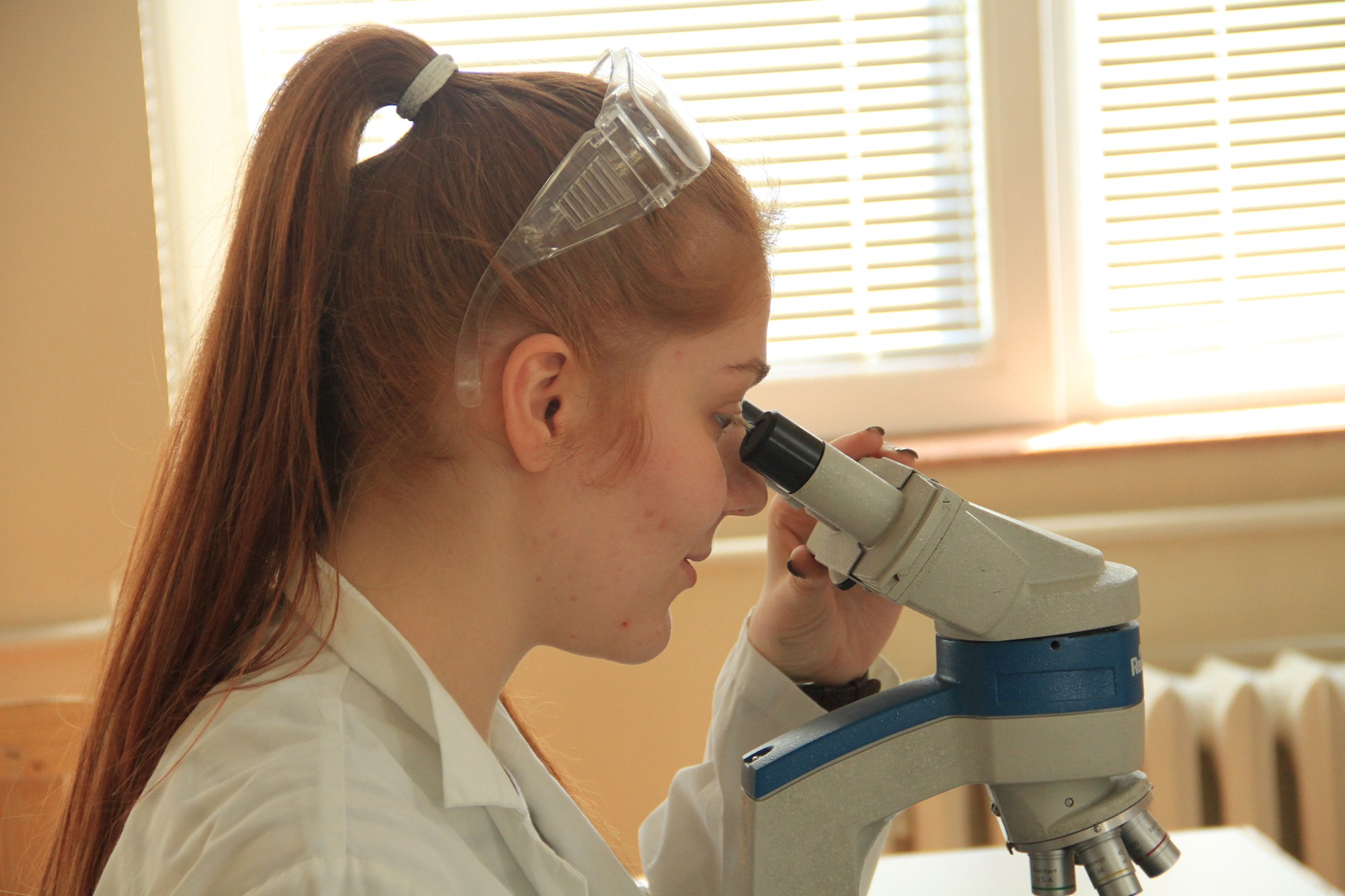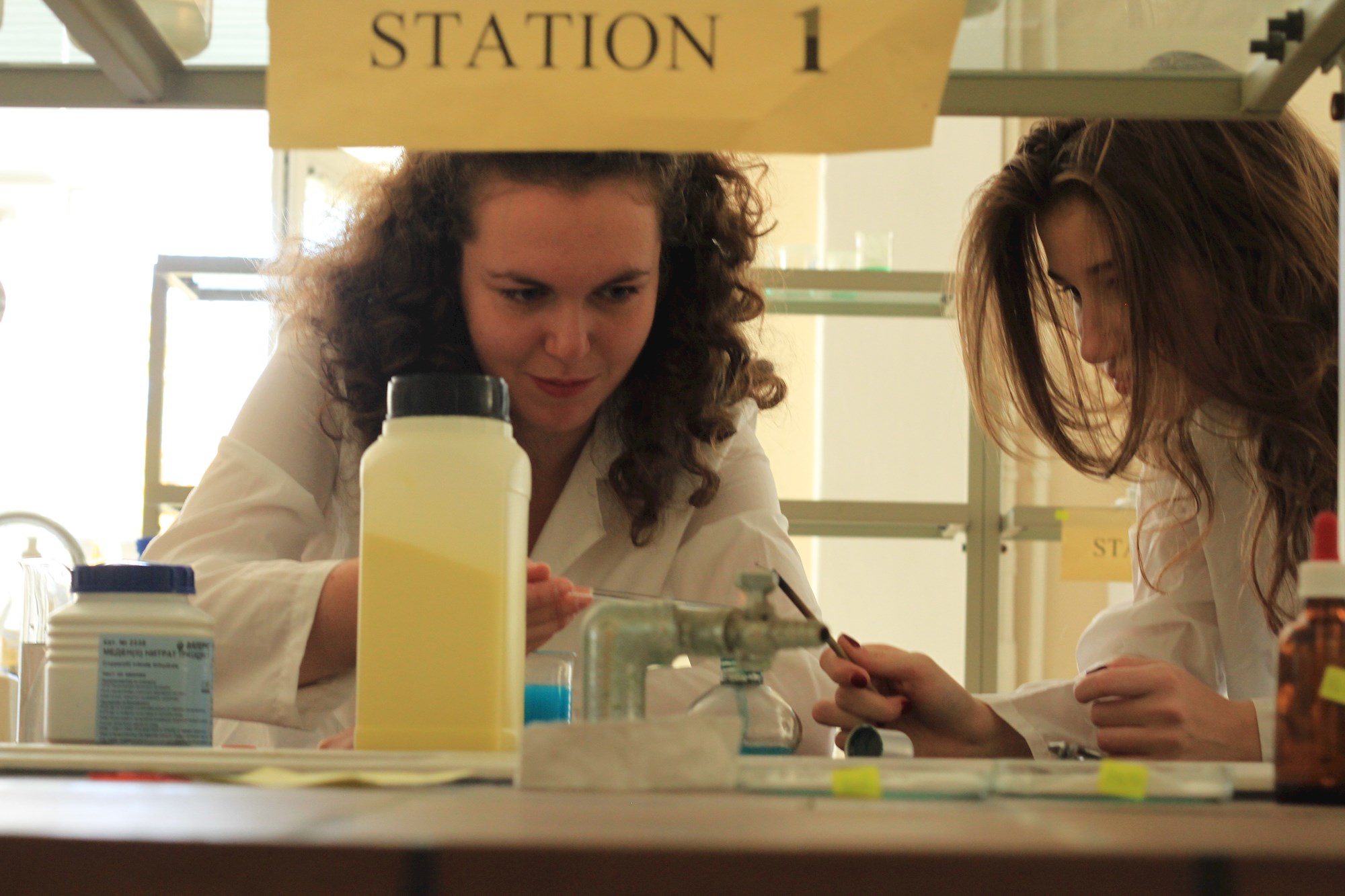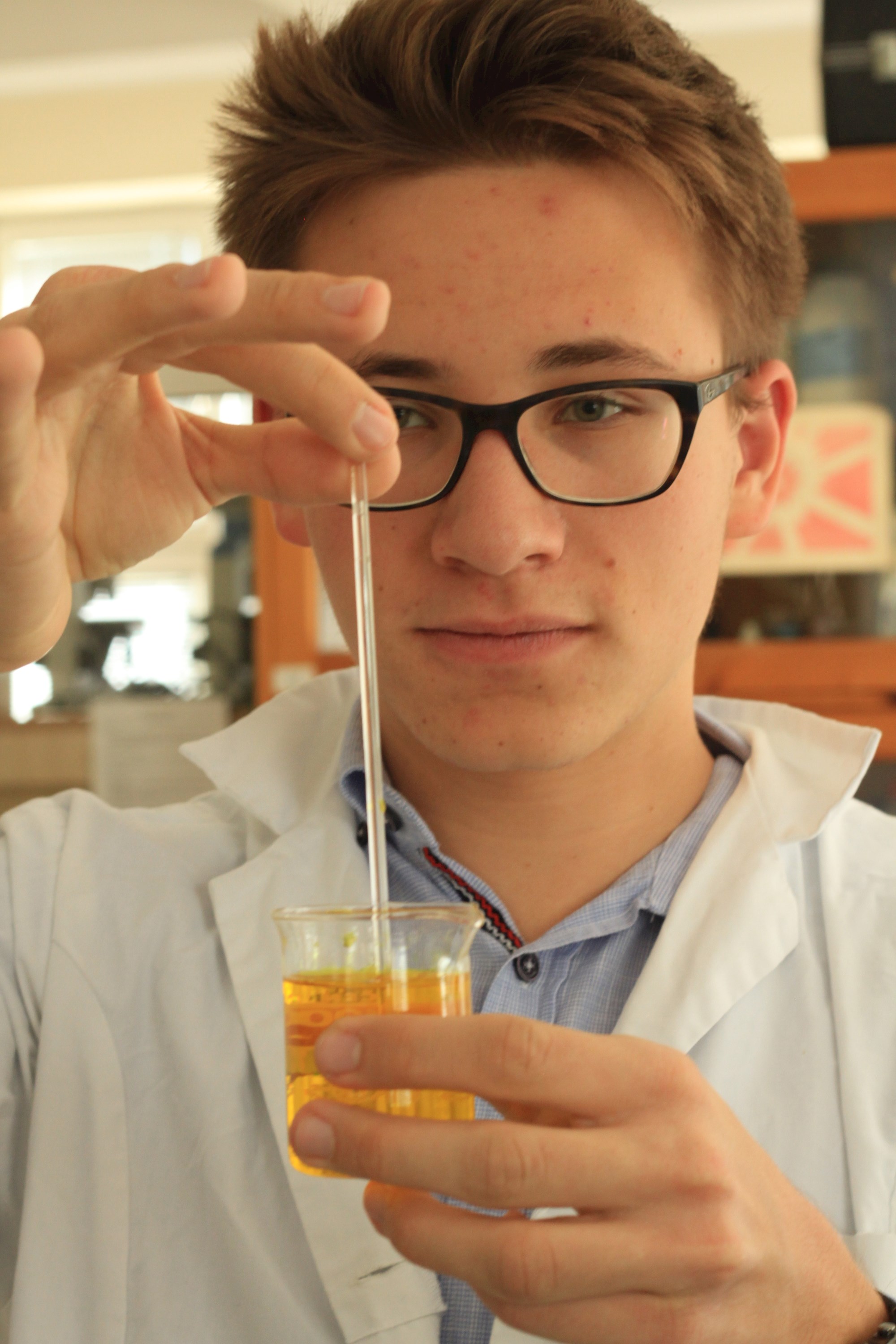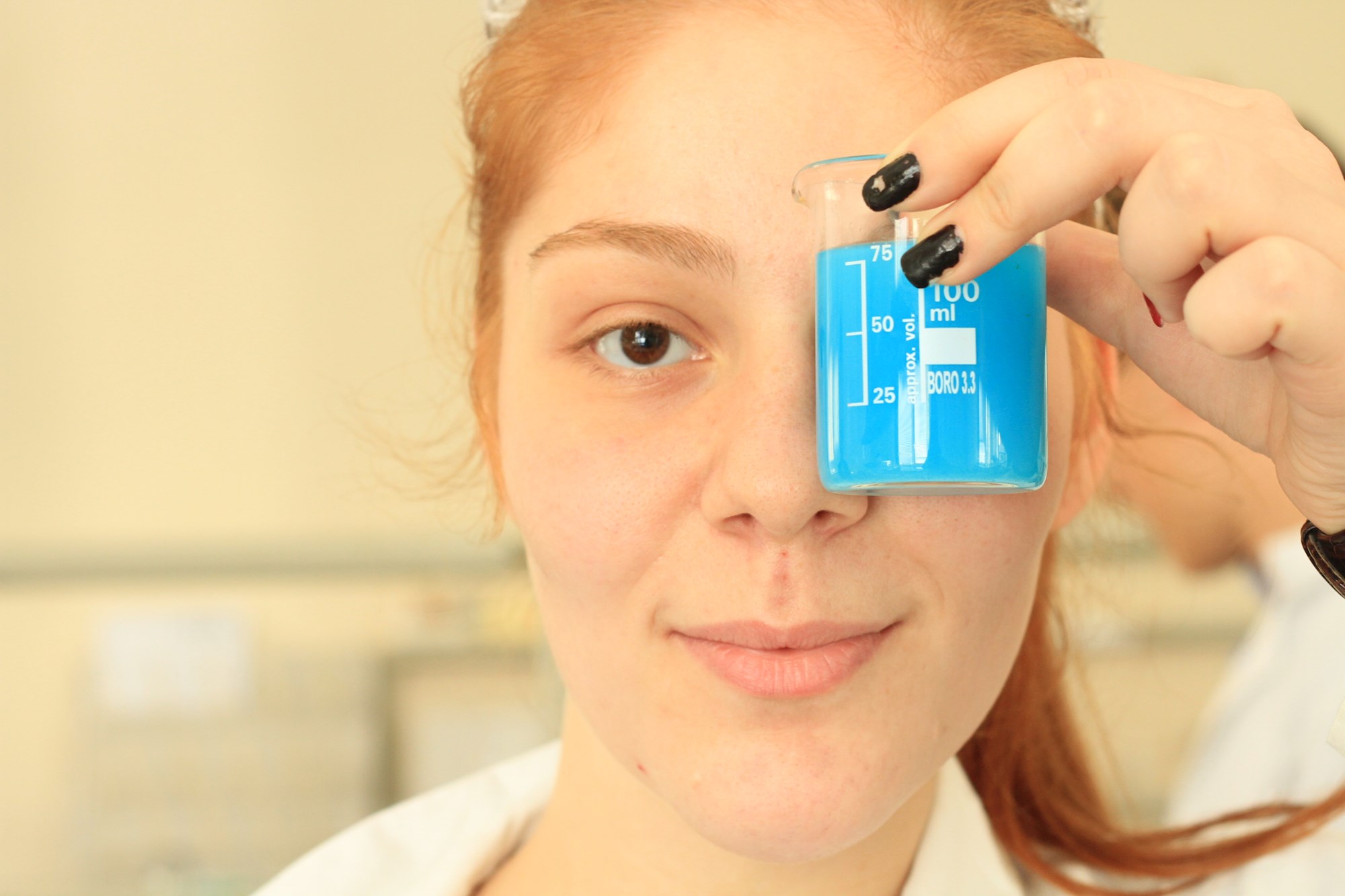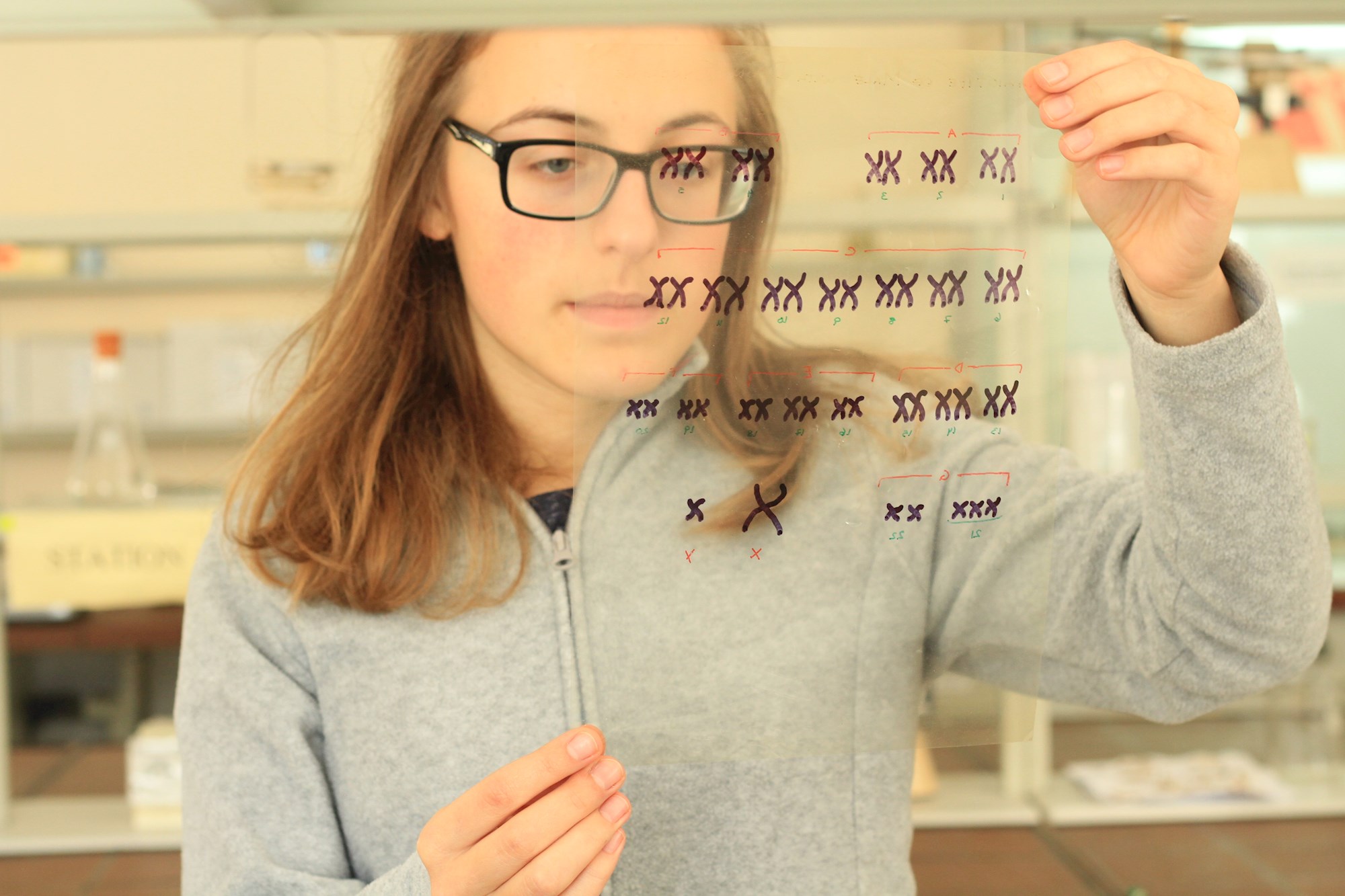FISSION Happens
Last year Tsveta Kamenova, Ivana Andreeva, and Mihail Georgiev won awards at the Vienna International Science and Engineering Fair, and got inspired to organize a similar student forum on their school campus. They called the event FISSION. The first FISSION took place on March 12, thanks to the support of MTel Talant, Teach for Bulgaria, and many other sponsors. We asked Ivana, Tsveta and Mihail to tell us more about the process of organizing the event.

Tsveta: “We started preparation for FISSION in May last year, shortly after our return from Vienna. We discussed the idea with our teachers, and Teach for Bulgaria stepped in to help – they recommended some of the guest speakers. We did this over the summer. With the beginning of the new school year we started actively looking for sponsors, participants, and more guest speakers."
Ivana: "The Vienna model inspired us, but we decided to organize an event that would take into account the situation in Bulgaria. Here, most kids do not have access to well-equipped labs, which is why they cannot create projects like the ones we saw in Vienna. We tried to emphasize the scientific method and the application of theoretical knowledge, instead. This requirement distinguishes FISSION from the Vienna International Science and Engineering Fair. We ask students to think about the ways in which they apply science to find practical solutions as they are developing their projects. On the one hand, we created FISSION to introduce the idea of scientific method, of asking questions – because that’s the essence of science, after all. On the other hand, we wanted ACS to open its doors to students from other schools. We wanted to show how good they were."
Tsveta: "We call "categories" the fields of science that the projects fall into: Biomedical Sciences, Physical Sciences and Engineering, Computer Science and Mathematics, Psychology, Ecology and Environmental Science. If FISSION grows, we may split some of the categories. For instance, Computer Science and Mathematics may be two different categories. Also Physical Sciences and Engineering – Engineering might be more focused on robots and models, while Physical Sciences should be more experimental.
"The three types of projects – Experiment, Working Model, and Original Maquette, Explanation or Demonstration (OMED) – are optimal. OMED is the most inclusive category and may feature purely theoretical research (we had such submissions) as well as maquettes. This is a category where you provide explanations. The explanation may take the shape of a theoretical paper, explained in a way that would make sense to someone with some background in the field, or the shape of a demonstration, like the demonstration of voltage arcs we got to see on Saturday. The purpose of the experiment is different – it does not need to explain, but rather to test. An experiment begs a question. Students should try to provide practical evidence to support a hypothesis they have come up with when answering a scientific question. A working model must serve a specific purpose. It must be an invention – anything from a robot to a computer code – that triggers something or itself performs a job."


Ivana: "We think that if Bulgarian students participate in international competitions, they’ll gain confidence that they’re doing really well. If they only take part in Bulgarian competitions – Olympiads, for instance – their confidence falters. Yes, there are the wunderkinds who win these Olympiads, but “that’s not me.” If we bring foreigners here, like foreign students with super good projects, Bulgarian students will be able to see these projects and compare their own work to them, and realize that they can achieve what the foreign students have achieved. When they see the weaknesses of their own projects, it should motivate them to come back and compete again, to work harder on the project presentation to an audience or focus on improving details of the scientific method."
Tsveta: “We copied some elements of the Vienna format, like the two rounds of presentations for instance: the first one for the judges, the second one for the audience. However, we also added an element that was missing in Vienna, the lectures. In general, the whole idea of this event is not to make it just a competition, but to create a forum where students can exchange ideas and experience, and eventually help each other. I am very happy to hear both from participants and from volunteers that they’ve met new people with whom they share common interests and ideas. This is exactly what we envisioned for FISSION.”
The participants from out of town stayed with host families.
Tsveta: “Last year we stayed with host families and saw that you not only get to have a guide showing you around, but you also get to communicate with people outside your team. We want our participants to mix, not to communicate only with the people they came here with – and that’s what usually happens at such competitions. We do hope that this community will thrive.”
Ivana: “One aspect that distinguishes FISSION from similar projects is the idea of mentorship. If a student had a problem, even if the problem had to do with translating the project into English, with the support of Teach for Bulgaria we helped the participants translate their submissions. Besides, we would answer any questions they had on preparing their abstracts for submission. If they had any problems writing up their applications, we would give them writing tips. Maybe that’s what we should focus on next year: providing more support to participants while they are developing their projects.
"The number one advantage is that FISSION is organized by students for students. We know what it takes to prepare a project all by oneself. Me, and Misho, and Tsveta have all prepared several projects for science fairs, and we know the challenges involved. We can understand the students and whatever problem they might have we shall try and help them. While other fairs are organized by adults who have their own understanding of how things should unfold. Perhaps FISSION is more liberal while the rest are more conservative."

Tsveta: "Our feedback form has 3 questions: what you did like, what you didn't like, and would you participate again. The things they suggest as improvements aren't much. For example, "We would like to have a chance to examine the other projects. So maybe you can implement presentation shifts." I hope it would be a longer event in the future years, spread over two or three days, e.g. Friday afternoon, all of Saturday and Sunday morning.
"All the respondents have marked that they want to get back and participate again. As soon as I know when the next edition will be, I will inform them. And I think that many of them will return – even if they can't prepare a project, they would come back as visitors. Moreover, we hope that in a few years those people would comprise the jury.
"That was part of the idea, putting together the participants with a jury of young people who have recently picked their career in the sciences. So that our participants could meet with peers of approximately their age who have already been in their shoes and can relate, "I did this and that happened, and now I'm here, and I'm doing so and so."
Regarding the chances of future editions of FISSION without the three organizers who are all graduating:
Tsveta: "The College has been a great supporter. And there are non-seniors who would like to take on this project. So next year at least, it will definitely happen. And we hope it will be an annual event at the College. There are rubrics worked out, the whole procedure has already been played once. The failings are obvious and can be worked out. Next year, the invitations will go out earlier, the active recruitment campaign, so that even more schools can come and even more variety can be achieved."
Ivana: "We've already interviewed students from other grade levels who want to run FISSION next year. There are many more than three."
